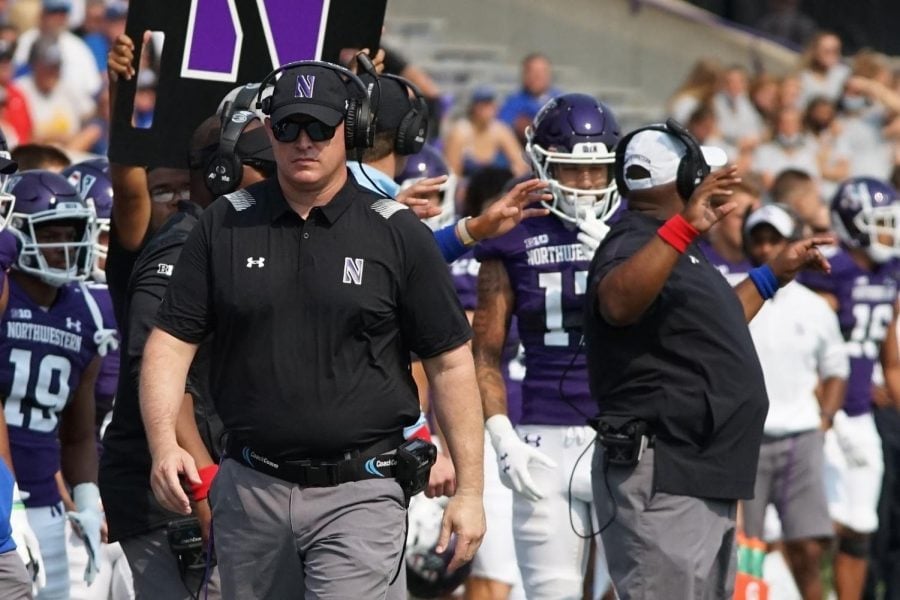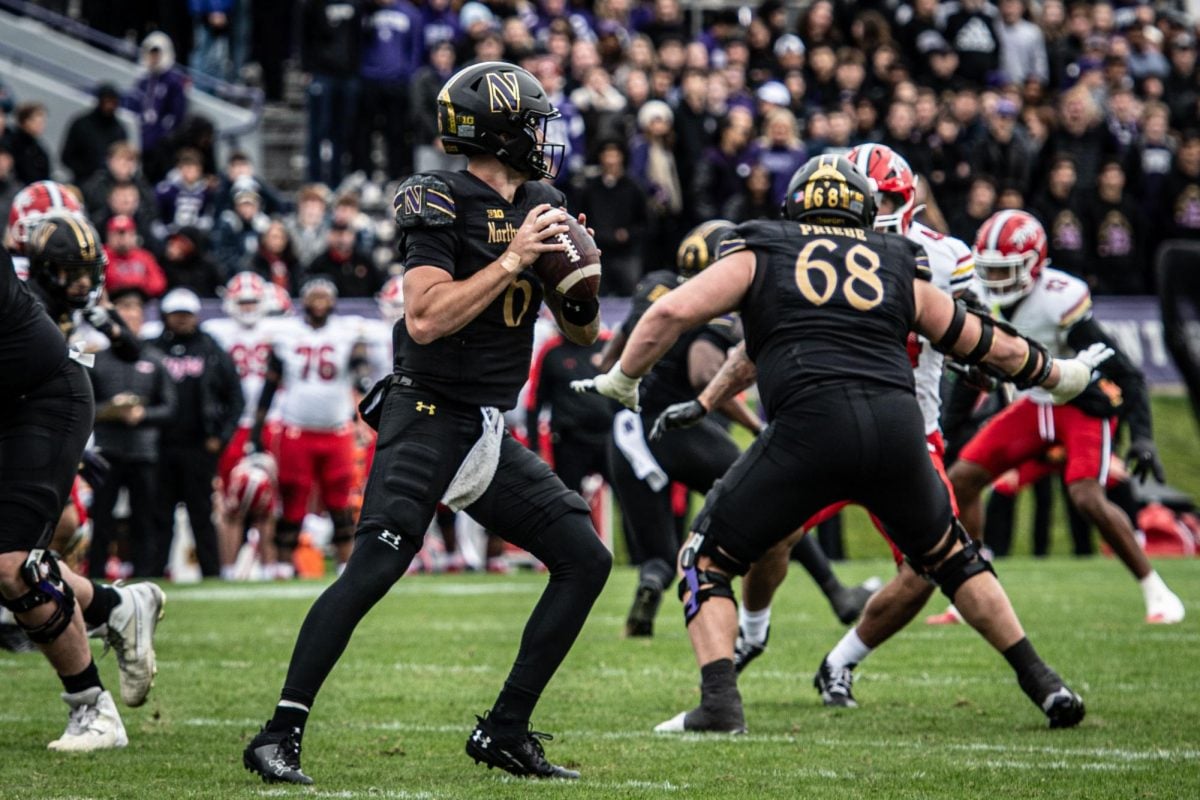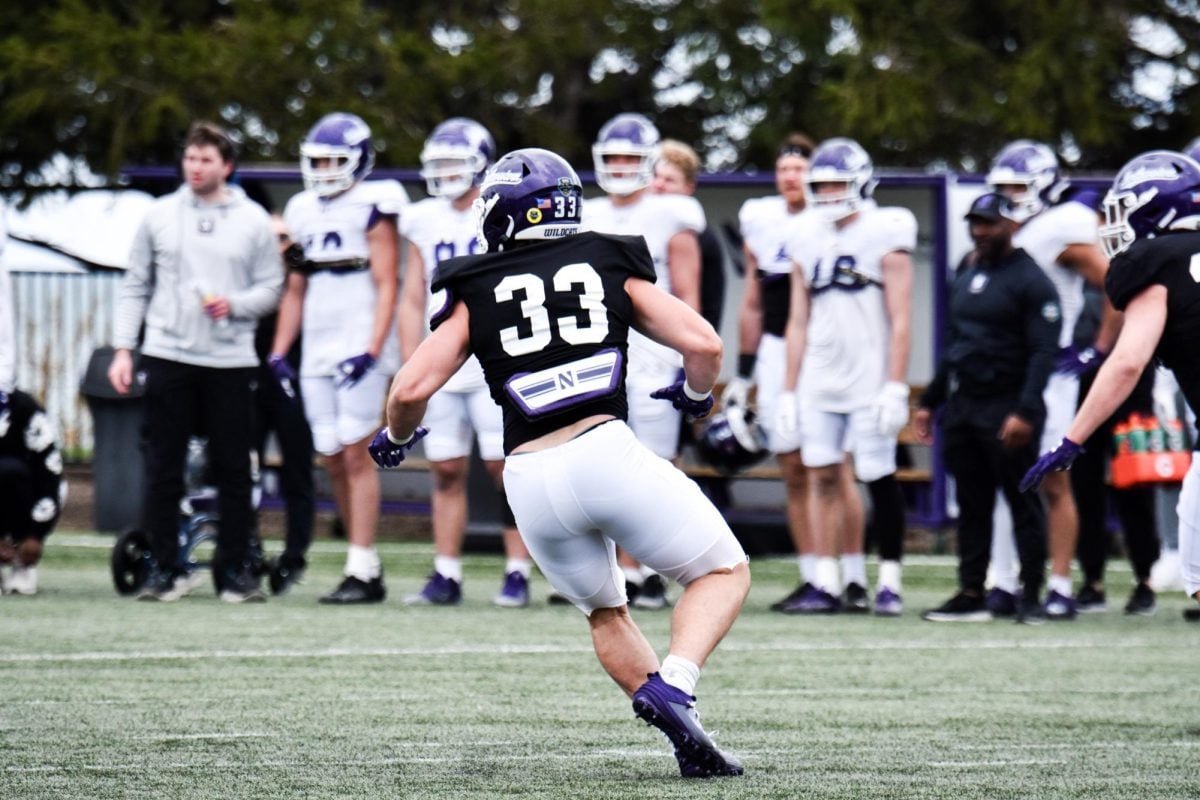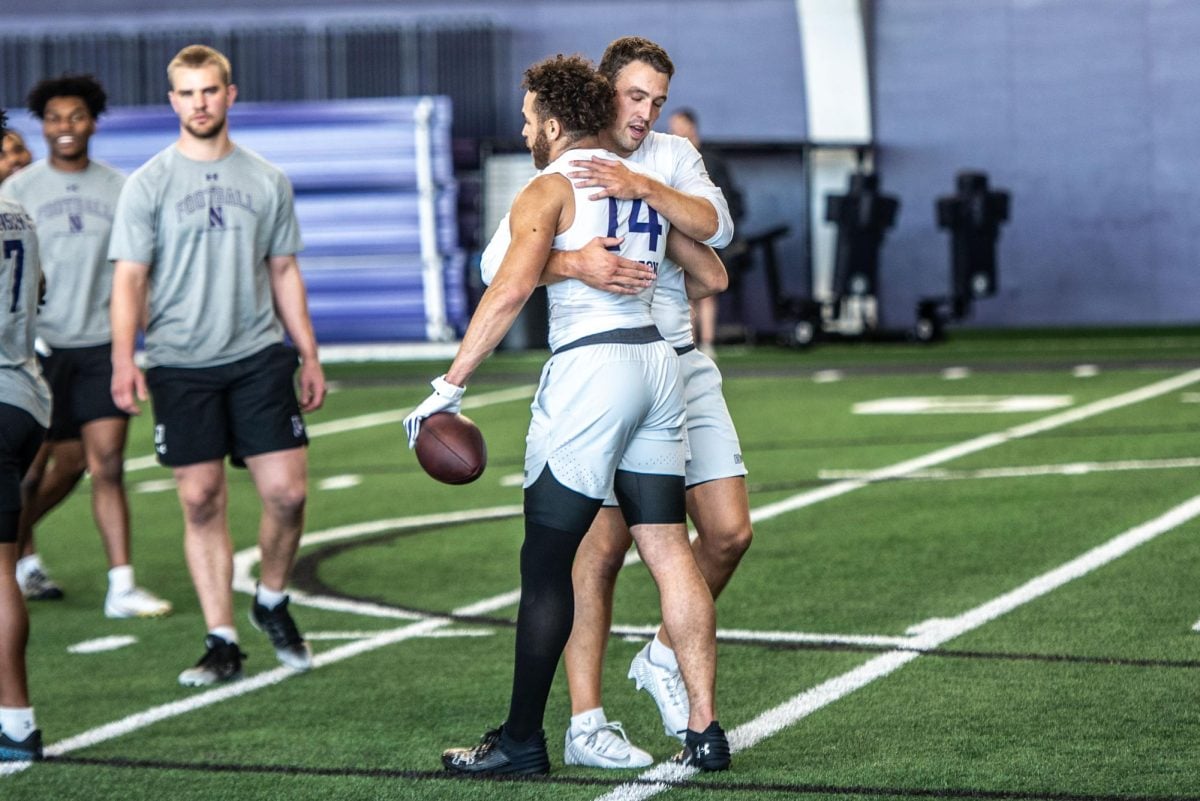The kicker looks toward the goalposts and takes several steps back and a few to the side. The game is on the line, the fans are going wild and what’s going through his mind?
“Nothing,” redshirt freshman kicker Jeff Budzien said.
Nothing?
“I don’t really think about much, just go out there and just try and execute like I do all week in practice,” senior kicker Stefan Demos said. “Thinking is for the practice field.”
Such is the mentality for a kicker, the only position in which the ability to not think is a valued talent, and opposing coaches will call a timeout purely for the purpose of clouding his mind.
“I kind of like it because I like to regroup,” Budzien said of getting iced with a timeout by opposing coaches. “If you’re mentally strong, it almost helps you.”
Demos said his strategy is to simply pretend that when he comes back to kick the field goal after a timeout, it’s an entirely new kick.
“If they call a timeout on you, walk over to the sideline or do whatever, and go back out there and get ready for the next one,” Demos said. “If they want to call three timeouts, they can call three, but you got to be ready for each one.”
Still, coping strategies aside, icing may not actually be as effective as it is often made out to be.
“Every kicker will probably tell you the same thing: It probably doesn’t affect you as much as people want to believe,” Demos said.
Coach Pat Fitzgerald said the decision to call a timeout isn’t automatic just because of a last-second field goal opportunity.
“It really depends on the situation,” Fitzgerald said. “I think if the clock’s running, you make them have to get out there and make the play. If the clock is dead, maybe you let it go down for a little while, then let them think about (the kick) a little longer.”
Half a second
It doesn’t take long once the field goal leaves the kicker’s foot for him to know if it’s good or not. Budzien saidhe knows within half a second.
“You know right away if they’re made more than you know if they’re missed,” Demos said. “If you hit a real good ball, you know it. Sometimes you can hit a bad ball and get away with it and still make it.”
While kickers may try to limit their thought before the kick, Budzien said afterward he’ll think back to how he executed on the sideline.
“I’ll try kind of dissecting what I did right and what I did wrong and just the operation with the snap, the hold,” he said. “I try to focus on the things I can control.”
When a kicker finds himself caught in a string of poor kicks, having a long-term memory to think back to before the slump can help him break out of it.
“You think, ‘You’ve kicked 10,000 balls in your life,'” Budzien said. “‘You made them, so there’s no reason for you to doubt it.'”
Demos’ slump
Demos is certainly no stranger to kicking slumps, including this season. He’s 8-of-13 on field goals and 15-of-18 on extra points, but he said he never lets past misses linger on his mind.
“I don’t leave the locker room until I’m at peace with myself,” he said. “I don’t carry it with me.”
So, Demos insists, any discussion that his confidence has been shaken by his performance against Auburn in the 2010 Outback Bowl is incorrect. In that game, which the Wildcats lost 38-35 in overtime, Demos had an extra point blocked and missed three field goals, including a potential game-winner and game-tier.
“That’s just crazy,” Demos said. “I haven’t thought about the Outback Bowl since the Outback Bowl.”
Demos said even the insults and degradation he has received from fans after misses don’t faze him.
“The only people I care about are the coaches and players in this locker room. That’s all,” he said. “I respect the fans for being supportive, but I don’t really care what they think about football just because, to be honest, they only know the result. They don’t know what goes into it.”
Hungry eyes
A degree of difficulty often overlooked for kickers is that, at least for road games, they have to tune out tens of thousands of screaming fans.
“It’s tough to go out and you got to kick in front of 75,000 people, and you’ve got to get over that,” Michigan State coach Mark Dantonio said. “You’ve got to kick through that.”
However, for visiting kickers coming to Northwestern, that might not be much of a problem. Attendance at Ryan Field, though improving this season, averaged 24,190 per game in 2009.
“It’s good for us because we have more fans than they do,” Michigan State punter and holder Aaron Bates said.
Dantonio said he believes holders like Bates deserve far more credit for their role in the kicking game.
“As a holder, having (Bates) back is just as critical. He’ll take pressure off that kicker as we move forward. He’s going to be the guy that sort of settles him down a little bit, breathes confidence into our kicker.”
This role of calming the kicker has been especially important to Michigan State this year, as the Spartans have relied on sophomore Dan Conroy taking over the kicking duties for Brett Swenson, who led Michigan State in points last season. Thus far, Conroy has been perfect, making 13-of-13 field goals and 28-of-28 extra points.
For NU, the confidence that stems from experience has to come directly from Demos, since his holder, punter Brandon Williams, is just a redshirt freshman.
“I always tell (the kicker) that I should get one point for every field goal he made because I was a part of it,” Bates said.
Extracurricular activities
Occasionally, the kicker and the holder are called upon for far more than field goals and extra points, something Bates has experienced this year.
In overtime against Notre Dame, the Spartans ran a fake field goal in which Bates had to throw a pass. The play worked to perfection, and Bates completed the pass to tight end Charlie Gantt for the game-winning score.
LSU ran its own fake rather than attempt a game-tying field goal two weeks ago, as holder Derek Helton pitched the ball over his head to kicker Josh Jasper, who ran 11 yards for a first down. That kept the drive alive, which ended in the game-winning touchdown for the Tigers.
“We’ve got stuff ready each week,” Fitzgerald said of the possibility of NU running a fake field goal. “More times than not, I’d probably keep the offense out there.”
Demos said he’d just assume Fitzgerald would stick with the offense rather than rely on him to execute a fake.
“If it ever got to me, it would probably be not a good thing,” Demos said. “I would just suggest to Coach that we avoid that at all costs.”







